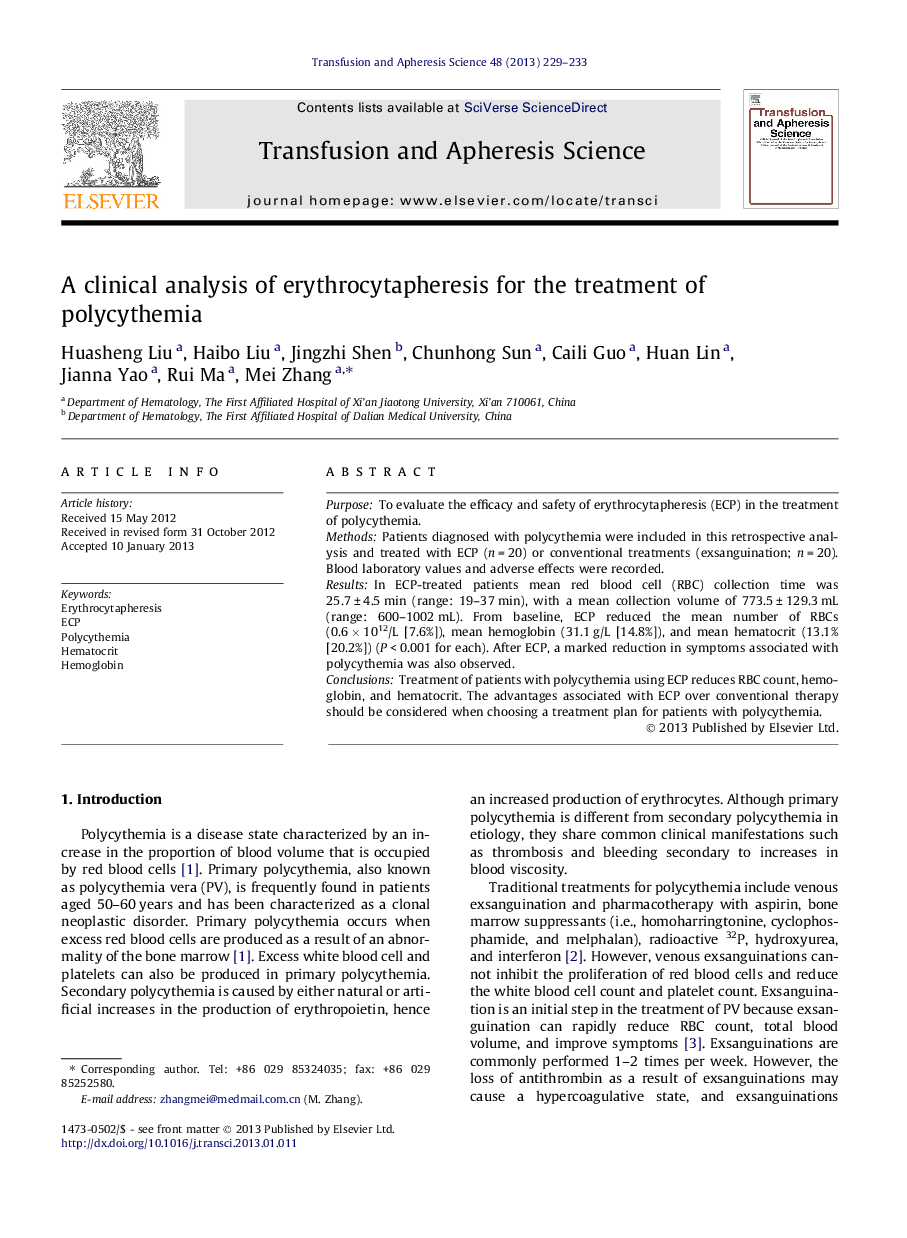| Article ID | Journal | Published Year | Pages | File Type |
|---|---|---|---|---|
| 3335560 | Transfusion and Apheresis Science | 2013 | 5 Pages |
PurposeTo evaluate the efficacy and safety of erythrocytapheresis (ECP) in the treatment of polycythemia.MethodsPatients diagnosed with polycythemia were included in this retrospective analysis and treated with ECP (n = 20) or conventional treatments (exsanguination; n = 20). Blood laboratory values and adverse effects were recorded.ResultsIn ECP-treated patients mean red blood cell (RBC) collection time was 25.7 ± 4.5 min (range: 19–37 min), with a mean collection volume of 773.5 ± 129.3 mL (range: 600–1002 mL). From baseline, ECP reduced the mean number of RBCs (0.6 × 1012/L [7.6%]), mean hemoglobin (31.1 g/L [14.8%]), and mean hematocrit (13.1% [20.2%]) (P < 0.001 for each). After ECP, a marked reduction in symptoms associated with polycythemia was also observed.ConclusionsTreatment of patients with polycythemia using ECP reduces RBC count, hemoglobin, and hematocrit. The advantages associated with ECP over conventional therapy should be considered when choosing a treatment plan for patients with polycythemia.
